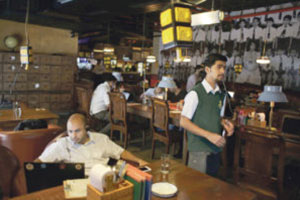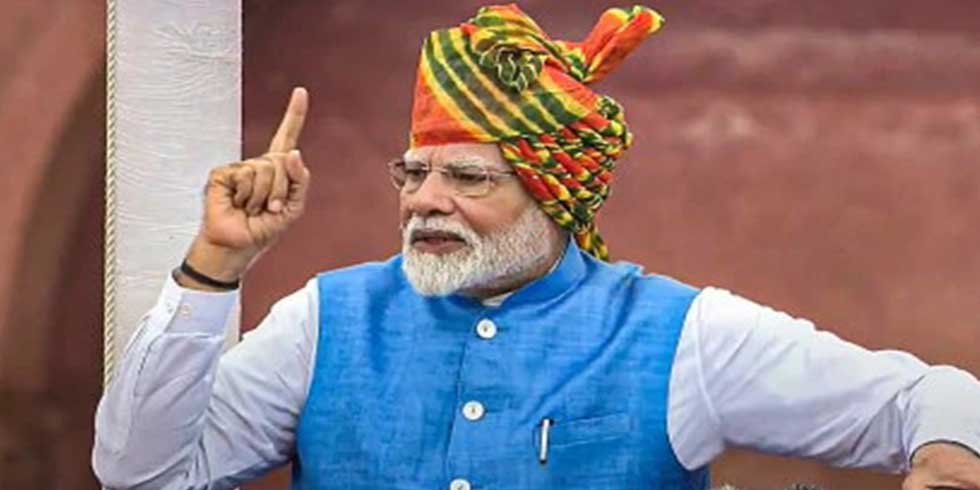Every weekend, the partiers flood into a New Delhi restaurant and dance club called Social, a three-storey destination on the edge of Hauz Khas Village, one of the city’s most popular nightlife neighbourhoods.
After nightfall, the bar is busy and the dance floor is full. The lines regularly stretch out into the street. The dancing goes on until 1am. But just a few hours later, the watering hole will be clean, the tables will be cleared of silverware and plates and the nightclub will have been transformed into a cozy office where no one gets fired for drinking at work.
Everyone shares desks at Social – photographers, designers, journalists, software programmers. They bounce ideas off one another, hire one another and collaborate to expand their businesses.
Everyone is either a freelancer or working for a small start-up. As India emerges as one of the biggest markets in the world for tech-based start-ups, workspaces are transforming from traditional and hierarchical to relaxed and bar-like.
“It’s the millennial personality,” says 29-year-old Dinsa Sachan, a freelance journalist who works out of Social.
“People don’t want to bow down to random bosses in their offices. They are seeking more meaningful work. So, I think co-working spaces are like a melting pot for individuals like these.”
The first co-working offices began springing up in India about three years ago. Today, there are at least a dozen in New Delhi – though Social is the only one that also functions as a restaurant – with similar numbers in Mumbai, Bangalore and Hyderabad, where most Indian start-ups are based.
With more than 4,200 new technology companies, mostly phone apps or websites, by the end of last year, India now has the third-largest start-up industry in the world, behind the US and United Kingdom, according to The National Association of Software and Services Companies (NASSCOM), an Indian industry research company.
Foreign-based investors are opening their coffers, and now comprise most of the money being pumped into Indian startups, NASSCOM says.
Funding for Indian start-ups is growing at more than 125 per cent a year, with an additional $700 million estimated to be invested before February 2017, according to a 2016 report by InnoVen Capital, an Asian venture capital firm.
Riyaaz Amlani, the owner of Social and a powerful force in the changing Indian restaurant scene, said he noticed a demand for cheap office space in prime New Delhi locations and decided on a fluid concept for his restaurants.
There are now 14 Social outlets across India, all of them also co-working spaces. “Increasingly, offices started becoming more like cafes, right? Google, Yahoo, Facebook, Twitter,” the 41-year-old says.
“If you get into a traditional office environment, you know, it’s all very cut-and-dried. It’s all very hierarchal. Your importance is measured by the amount of square-foot [your office has].”
Membership fees at most shared offices are usually less than $100 per month. They also come with free access to networking events, investors’ conferences and even parties.
Rishi Jalan, a 25-year-old who started a sports management company for student athletes two years ago, said: “I know so many of my friends who actually went to a co-working space and found their co-founders.”








Add Comment